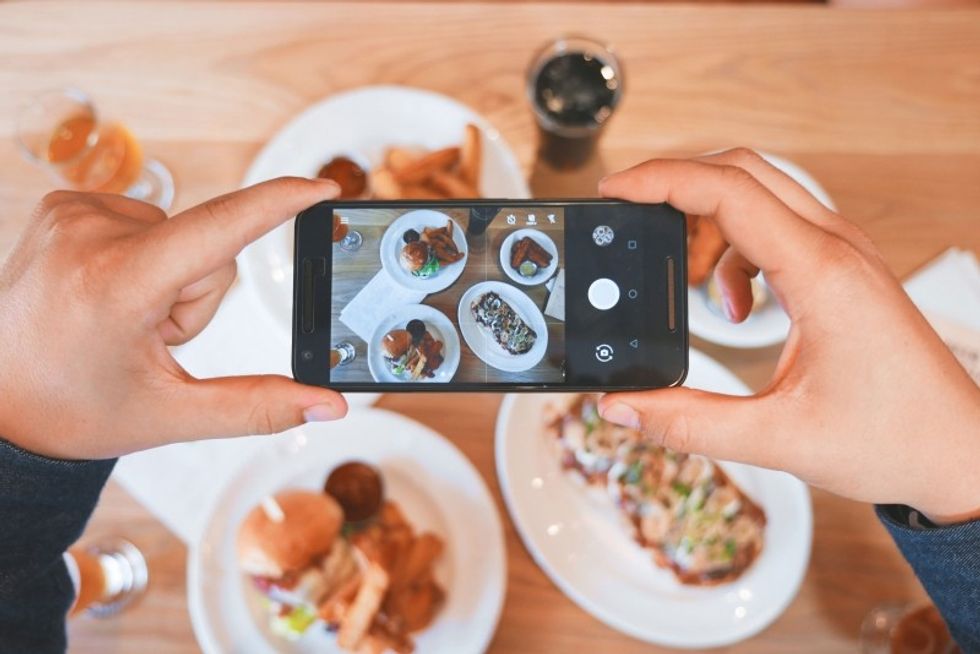We have all read those health books about eating better and living your best life -- but let's be honest, the minute we put the book down - we go back to our same old habits. Sure, eating raw and organic sounds great or going to hot yoga after class seems like the perfect way to jumpstart your new health kick. Sadly, the unfortunate reality is that the average price for one yoga class is about $16 and anyone who can afford a whole foods diet on the regular should just stop reading now.
Still with us? Good! Now check out some of these ways to jumpstart that diet and start feeling better without breaking the bank!
1. Find motivation from within
Find something that inspires you or interests you and take advantage of it. For example, if you enjoy a certain podcast, how can you make it into something more beneficial? Take advantage of these things and instead of listening to it at your desk or after class, enjoy it while on a bike ride. If you like to cook, turn it into an Instagram account for healthy meals. Whatever your passion is, seize the moment and turn it into the inspiration that will motivate you to eat healthier or exercise more in a way that doesn't feel forced.
2. Utilize new means of transportation
Recently, there has been an increase in dockless bikes and scooters throughout many cities across the U.S. These new services offer a cheap and fun alternative to driving a car or taking a rideshare service. With car accidents and greenhouse gas emissions on the rise, you will not only be getting a little fresh air and exercise, but you will be helping reduce your carbon footprint.
3. Find tech that motivates
There are tons of free apps out there that can help jumpstart your healthy new lifestyle. Embrace technology to build strong new habits. Find free motivational apps available that can help you clock in your meals, log your daily goals and even track your sleep patterns.
4. Get more sleep
New studies have found a link between sleep duration and depression. According to the genetic study conducted by the American Academy of Sleep Medicine, "Healthy sleep is a necessity for physical, mental and emotional well-being," said Dr. M. Safwan Badr. "This new research emphasizes that we can make an investment in our health by prioritizing sleep." The best thing about these study results is -- sleep is free! Placing emphasis on better sleeping cycles will ultimately have a trickle-down effect on your day-to-day life and well-being. Sleep deprivation even after one night can leave you hungrier, more likely to be involved in an accident, more susceptible to becoming ill and yes -- beauty sleep is a real thing.
5. Small habits with big consequences
Changing small habits on a daily basis can also help curb unhealthy rituals. It's an all too common occurrence once 3 pm rolls around to be reaching for that sugary snack. Beat that afternoon struggle by filling up on food that is packed with energy and low in sugar and fats. Instead of the chocolate chip cookie or even granola bars (most aren't that healthy), try plain Greek yogurt with a piece of fruit or raw unsalted nuts.
Small steps can make a big difference in mental clarity and how you feel. For example, simple changes like having a cup of chamomile tea before bed instead of snacking can make a big difference in your diet habits. Another example is skipping the popcorn when you go to a movie and instead of a coke, get an unsweetened iced tea.
A healthy body starts with a healthy mind. Practicing mindful meditation through any creative outlet can be extremely beneficial to your mental health. Meditation can help alleviate stress, pain, anxiety, cardiovascular disease, and insomnia. In as little as ten minutes a day, meditation can counteract many of life's daily stresses. Meditation is not only incredibly effective, but it's also free. If meditation isn't your thing, try setting aside ten minutes at night to write down three things that went well in your day and why.
























